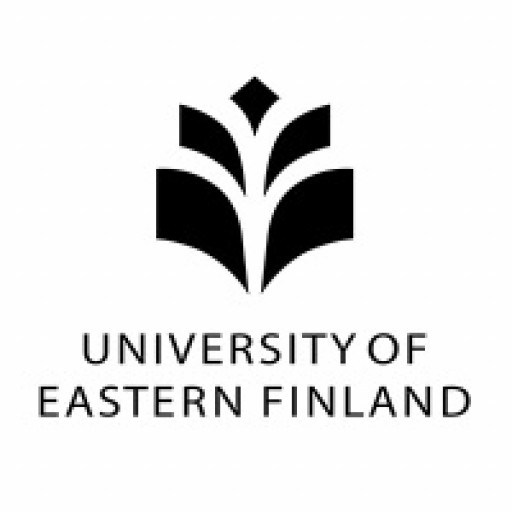Photos of university / #universityofhelsinki
The Degree Programme in Particle Physics and Astrophysical Sciences at the University of Helsinki offers students a comprehensive education in the fundamental constituents of matter and the universe. This multidisciplinary programme combines theoretical physics, experimental techniques, and observational astronomy to provide a deep understanding of the universe's smallest particles and its largest structures. Students will engage with cutting-edge research in particle physics, astrophysics, and cosmology, gaining skills in data analysis, computational methods, and experimental design. The programme emphasizes both theoretical foundations and practical experiences, preparing graduates for careers in academia, research institutions, and industry sectors related to physics, space sciences, and data science. Throughout their studies, students will have access to state-of-the-art laboratories, observatories, and collaborations with international research projects. The curriculum covers core courses in classical and modern physics, quantum mechanics, relativity, astrophysics, particle physics, and computational physics, complemented by courses in mathematics and programming. In addition to coursework, students participate in research projects, internships, and seminars, fostering critical thinking and scientific communication skills. The programme also encourages international mobility and cooperation, with opportunities to study abroad or participate in joint research initiatives. Graduates of the programme will be equipped with analytical skills, problem-solving abilities, and a thorough understanding of the physical universe, enabling them to contribute to scientific advancements and technological innovations. Overall, the Degree Programme in Particle Physics and Astrophysical Sciences at the University of Helsinki is designed to cultivate the next generation of researchers and professionals dedicated to exploring the mysteries of matter and the cosmos, making meaningful contributions to our understanding of the universe.
The Particle Physics and Astrophysical Sciences program at the University of Helsinki offers students a comprehensive education in understanding the fundamental constituents of matter and the universe. This interdisciplinary program combines theoretical approaches with experimental techniques, enabling students to explore phenomena ranging from subatomic particles to cosmic structures. Throughout the program, students gain in-depth knowledge of particle physics, astrophysics, cosmology, and related fields, equipping them with both broad and specialized skills. The curriculum includes courses on classical and quantum mechanics, electromagnetism, statistical physics, quantum field theory, general relativity, astronomical observations, and computational methods. Students have opportunities to participate in cutting-edge research projects, often collaborating with international institutions and participating in large-scale experiments such as those conducted at CERN or in space-based observatories. The program emphasizes both theoretical modeling and practical data analysis, preparing students for careers in academia, research institutes, government agencies, or the private sector. Laboratory work, internships, and thesis projects form key components of the learning experience, fostering hands-on skills and independent research capabilities. Students also develop critical thinking, problem-solving, and communication skills necessary for scientific excellence and innovation. The program aims to produce graduates who are capable of addressing major scientific questions about the universe's origin, structure, and fundamental laws. Graduates are well-equipped for continued postgraduate studies or diverse roles in scientific research, technological development, or science communication. The University of Helsinki’s Particle Physics and Astrophysical Sciences program combines rigorous academic training with vibrant research communities, offering a unique environment for students passionate about understanding the mysteries of matter and the cosmos.
The Master’s degree program in Particle Physics and Astrophysical Sciences at the University of Helsinki requires applicants to hold a Bachelor’s degree or an equivalent qualification in physics or a closely related field from a recognized university. Prospective students must demonstrate a solid foundation in classical mechanics, electromagnetism, quantum mechanics, thermodynamics, statistical physics, and mathematical methods relevant to physics. Proficiency in written and spoken English is mandatory, typically evidenced by a recognized language test or previous degree taught in English. The application process involves submitting academic transcripts, a motivation letter outlining the applicant’s interest and goals, curriculum vitae (CV), and references or recommendation letters from previous educators or professionals familiar with the applicant’s academic capabilities. The program emphasizes both theoretical understanding and practical skills; thus, prior experience in experimental physics, data analysis, or computational methods is advantageous. Candidates are expected to have a good understanding of programming languages such as Python, C++, or MATLAB, which are commonly used in data analysis and simulations within the field. The admission committee assesses applicants based on academic performance, motivation, research experience, and potential for successfully completing graduate studies in this specialized area. The program duration is typically two years (full-time), and students should be prepared to undertake coursework, participate in seminars, and engage in research projects, often leading to a Master's thesis. International students need to meet visa and residence permit requirements as specified by Finnish authorities. There are no specific prerequisite courses officially required, but applicants are encouraged to have completed coursework that covers the core areas of physics and mathematics, including calculus, linear algebra, and differential equations. Additional skills in data analysis and computer programming are highly valued. The university provides detailed admission criteria and application deadlines on its official webpage, and prospective students are advised to review these carefully and prepare a complete application package accordingly. Successful applicants gain access to cutting-edge research facilities and work alongside renowned scientists in the fields of particle physics and astrophysics, contributing to the advancement of knowledge in understanding the universe at its most fundamental levels.
Financing for the Particle Physics and Astrophysical Sciences program at the University of Helsinki is primarily supported through a combination of national and European funding sources, research grants, university scholarships, and student financial aid. Students enrolled in this program have access to various scholarship opportunities offered by the University of Helsinki, which aim to support international and domestic students financially throughout their studies. These scholarships are often based on academic performance, research potential, and financial need, and may cover tuition fees as well as living expenses.
In addition to university-specific financial aid, students may also qualify for Finnish government student grants and loans administered by KELA (The Social Insurance Institution of Finland). These forms of support are designed to help both Finnish and international students manage their daily expenses during their study period. Accessing these grants typically requires fulfilling residency and study progress criteria, and students are encouraged to apply early to secure financial stability.
Research funding plays a vital role for students and faculty involved in pioneering particle physics and astrophysics research projects. Many of these projects are financed through grants from organizations such as the Academy of Finland, the European Research Council (ERC), and CERN collaborations. Master's and doctoral students may have opportunities to be involved in funded research projects, which often come with stipends or salaries to support their academic pursuits.
The university also offers various teaching assistant positions and research assistantships, which not only provide financial support but also valuable professional experience. Prospective students are advised to consult the University of Helsinki's official financial aid and scholarship pages for the most current information regarding available funding options and application procedures.
In conclusion, the financing of the Particle Physics and Astrophysical Sciences program is a multifaceted system involving university scholarships, government aid, research grants, and employment opportunities within the university. This comprehensive support structure ensures that students can focus on their academic and research activities with adequate financial resources, thus fostering an environment conducive to advanced scientific exploration and discovery.
The Particle Physics and Astrophysical Sciences programme at the University of Helsinki offers students a comprehensive education in the fundamental aspects of particles, forces, and the universe. This interdisciplinary programme combines physics, astronomy, and astrophysics to provide a deep understanding of the universe’s most fundamental questions. The curriculum includes courses in classical physics, quantum mechanics, general relativity, particle physics, cosmology, and astrophysics, allowing students to develop both theoretical knowledge and practical skills. Students have opportunities to participate in advanced laboratory work, data analysis, and research projects, often in collaboration with international research facilities such as CERN and other astrophysical observatories.
During the programme, students learn how to use modern scientific instruments and computational tools, enabling them to analyze complex data sets. The programme emphasizes research-based learning, encouraging students to undertake independent projects and thesis work that contribute to cutting-edge scientific discoveries. Graduates of this programme acquire a versatile skill set applicable in academia, research institutes, industry, and science communication. The programme is designed to prepare students for doctoral studies or careers in research, technology, or education. Faculty members are active researchers involved in international collaborations, ensuring that students are exposed to the latest advances in particle physics and astrophysics. The interdisciplinary nature of the programme fosters critical thinking, problem-solving skills, and innovative approaches to scientific challenges. Overall, it offers a rigorous and stimulating environment for students passionate about understanding the universe at its most fundamental levels.










